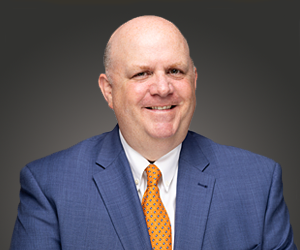Jury Duty and a Great Reminder
Written by Anthony Demangone, Powered by NAFCU
I think courts like me. I've been called to jury duty five times, and next Monday, I report yet again to fulfill my civic duty.
Probably six years ago, I had jury duty in Arlington, Virginia. I know it is practically an American past-time to find ways to escape jury duty. A good friend of mine at the time laughed when I told her about serving. She gave me quite a few tips on how to escape jury duty, or if I couldn't, on how to answer questions to avoid serving for a given trial.
It was tempting. Jury duty in Arlington lasts up to four days. No smartphones are permitted inside the courthouse. Work is busy. I have kids. I have things to do! Sound familiar?
As the dates drew near, I rearranged my schedule. I accepted appointments as tentative. But my fear and trepidation were all for naught. My case settled on the first day, and the clerk made it clear that the need for us to return was almost non-existent.
As our jury pool, about 90 strong, exchanged smiles, the phone rang. The judge wanted to see us. Unsure of what we faced, we wandered up to the courtroom.
Judge Ellis summarized the case that settled and answered questions about its background. He paused and then began to speak of larger things. I wish I had a recorder to capture his words.
He noted that America has certain, powerful rights. One of those is the right to a trial by a jury of our peers. Our willingness to take part in this process was the backbone of that right. He was proud of us, he said.
He spoke of military cemeteries throughout America and the rest of the world, filled with fallen U.S. soldiers. They fought for our rights. For our right to that jury trial. (This shouldn't come as a surprise, as Judge Ellis was a naval aviator from 1961 to 1966.) He had lived in other parts of the world, he explained. Other parts of the world that didn't empower use juries as extensively as America does.
He also noted the legal system didn't belong to judges or attorneys. It belonged to all of us. And that the judge was no more important than the defense attorney, who was no more important than the plaintiff, who was no more important than the jury. The courtroom belonged to "the people." It was a place for the truth, and for justice.
Judge Ellis then gave us a heartfelt thanks, before he left the courtroom.
All 90 of us left the courtroom with a bit more pride than we entered.
There's a lesson for all of us in the words of Judge Ellis. He knew that, for many of us, we'd never set foot in a courtroom again. The impression he left, very well could color our views of the legal system as a whole. Would we leave with a cynical taste in our mouth? Would we leave annoyed or angry? He did his best to make sure we left with pride and a knowledge of what we did and why we did it.
We all have the ability to follow Judge Ellis' lead. How often do we tell our members or colleagues just how much we appreciate them and the important role they play? Do we give a "Judge Ellis" talk at our annual member meeting? At staff training events? To new members and established ones?
So, a few questions for you.
- Have you identified opportunities to make a "Judge Ellis" speech?
- Are you taking advantage of them?
Thanks for all you do. And many thanks, Judge Ellis.
About the Author
Anthony Demangone, Executive Vice President and COO, NAFCU
Anthony Demangone, NCCO is Executive Vice President and Chief Operating Officer at NAFCU, where he oversees day-to-day operations and manages the association's education, marketing, membership, human resources, building facilities, finance and information technology functions. He also authors NAFCU's executive blog, Musings from the CU Suite and co-authored "Managing and Leading Well," a book for credit union leaders, with NAFCU President and CEO Dan Berger.

